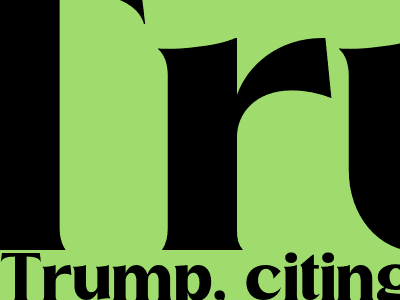
Trump, citing immunity, seeks dismissal of federal election charges
Trump's lawyers argue that he is immune from prosecution because he was acting in his official capacity as president when he allegedly interfered in the 2020 election.
Former President Donald Trump is asking a federal judge to dismiss charges that he sought to overturn the results of the 2020 election, arguing that he is immune from prosecution because he was acting in his official capacity as president at the time.
In a motion filed Wednesday, Trump's lawyers argue that the charges against him are "unconstitutional" because they seek to criminalize political speech. They also argue that the Justice Department is politically motivated in its prosecution of Trump.
The charges against Trump stem from his efforts to pressure state officials to overturn the results of the election in his favor.
He has been charged with conspiracy to defraud the United States, obstruction of an official proceeding, and inciting an insurrection.
Trump's lawyers argue that these charges are based on "speculation and innuendo" and that there is no evidence that he actually committed any crimes.
They also argue that the Justice Department is selectively prosecuting Trump because he is a political opponent of President Joe Biden.
The Justice Department has not yet responded to Trump's motion to dismiss the charges.
It is unclear whether Trump's immunity argument will be successful. The Supreme Court has ruled that presidents are not immune from criminal prosecution, but it is possible that Trump could argue that his actions were protected by the First Amendment.
The case is likely to be closely watched by legal experts and political observers. It could have significant implications for the future of presidential power and the ability of prosecutors to hold presidents accountable for their actions.